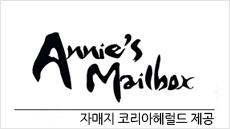 |
Dear Annie: From the time you are born, your parents and elders tell you to always tell the truth. When you go to school, your teachers tell you the same. 애니에게 : 우린 태어날 때부터 부모님과 연장자들에게 항상 진실을 말하라고 가르침을 받아요. 학교에 가도 선생님들이 그렇게 말하고요.
And then when you enter the real world, you find that if you tell the truth, you are labeled a ? well, a word too rude to print in the newspaper. You are considered rude and opinionated. 그리고 실제 세상에 나가보면 진실을 말하다간 어떤 딱지가 붙어요. 신문에서 언급하긴 너무 무례한 단어죠. 무례하고 고집이 센 사람 취급을 당해요.
That’s because nobody actually likes the truth. We would rather be lied to. Everybody lies on a daily basis, and we are OK with it. 사실 진실을 좋아하는 사람은 아무도 없기 때문이에요. 우린 거짓말을 듣는 걸 더 좋아해요. 다들 매일같이 거짓말을 하고 우린 괘념치 않아요.
So why don’t we teach our children to lie, keep secrets and play political games right from the start? That way, by the time they enter the real world, they would be experts at it and fit right in. I would really like to hear your thoughts on this. ? True Lies 그런데 왜 우린 아이들에게 처음부터 거짓말을 하고 남에게 뭔가를 숨기고 정치게임을 하라고 가르치지 않죠? 그렇게 하면 실제 세상에 들어갈 때쯤이면 그것에 전문가가 되고 잘 적응할 텐데 말이죠. 이것에 대해 정말로 애니의 의견을 들어보고 싶어요. ? 진실된 거짓말
Dear True Lies: We should not teach our children to be mini Machiavellis. Manipulators might slither to some “success,” but they forfeit personal integrity, honor and the chance to have any meaningful relationships. 진실된 거짓말 님께: 아이들에게 미니 마키아벨리가 되라고 가르쳐선 안 돼요. 조작하는 사람들은 어느 정도의 ‘성공’에 쉽게 나아갈 수 있을 지 몰라도 그건 개인의 진실성, 명예, 의미있는 관계를 가질 기회를 빼앗아요.
No one truly respects a phony. 위선자를 정말로 존중하는 사람은 없어요.
Reading between the lines of your letter, I get the impression that you recently told someone something that you simply considered a fact and the person reacted poorly, and I also get the impression this wasn’t the first time. 행간을 읽어보니 님이 누군가에게 사실이라고 생각한 걸 이야기했는데 그 사람의 반응이 좋지 않았으며 그게 처음이 아니었다는 인상을 받는군요.
If you’re somebody who’s found himself saying “What? I’m just telling it like it is!” throughout your life, you may be confusing criticism with honesty. There is a difference. A good general rule is not to offer your opinion on other people’s business unless they ask for it. 만약 님이 “뭐라고? 난 있는 그대로 얘기하고 있는 거야!”라고 평생 말해온 사람이라면 님은 비난과 정직함을 혼동하고 있는 거예요. 거기엔 차이가 있어요. 부탁하지 않은 이상 남의 일에 님의 의견을 제시하지 않는 게 좋아요.
Dear Annie: Most people say they care about our planet and the humans and animals living on it. So what can you do to make the biggest positive impact? 애니에게: 대부분의 사람들이 지구와 그 위에 사는 인류, 동물들을 걱정한다고 해요. 그러면 가장 큰 긍정적 영향을 미치기 위해 우리가 할 수 있는 일은 뭘까요?
The answer may surprise some readers: Switch to a plantbased diet. Not to discount the value of biking to work, recycling or buying less plastic, but here are just a few key facts: Producing 1 pound of beef requires 1,799 gallons of water, whereas producing 1 pound of soybeans requires 216 gallons of water. Many other vegetables and grains require even less. 해답에 일부 독자분들은 놀랄 수도 있어요. 식물성 식사로 바꾸는 거예요. 자전거 출근, 재활용이나 플라스틱 구매를 줄이는 것의 가치를 무시하는 건 아니지만 여기 핵심 요소 몇 가지가 있어요. 콩 1파운드 생산에는 물 216갤런이 필요한 반면 쇠고기 1파운드를 생산하려면 물 1799 갤런이 필요해요. 그 외에 많은 채소와 곡물은 콩보다도 요구량이 작아요.
It takes 27 times more fossil fuel to deliver a calorie’s worth of beef to your plate than it takes to deliver a calorie’s worth of beans. 당신의 접시에 쇠고기 1칼로리를 담으려면 콩 1칼로리를 담는담는 것보다 27배의 화석연료가 들어요.
Because most chickens are factory farmed (and approximately 9 billion chickens are killed each year in the United States alone), our environment is contaminated by microbial pathogens, feed additives and manure production, affecting both human and animal health. 대부분의 닭이 닭장에서 사육되기 때문에 (그리고 미국에서만 매년 90억 마리의 닭이 죽임을 당해요) 환경은 미생물 병원균, 사료 첨가제, 거름으로 오염되고 있고 이것이 인간, 동물 모두의 건강에 영향을 미쳐요.
- Copyrights ⓒ 헤럴드경제 & heraldbiz.com, 무단 전재 및 재배포 금지 -
이 기사의 카테고리는 언론사의 분류를 따릅니다.
기사가 속한 카테고리는 언론사가 분류합니다.
언론사는 한 기사를 두 개 이상의 카테고리로 분류할 수 있습니다.
언론사는 한 기사를 두 개 이상의 카테고리로 분류할 수 있습니다.


